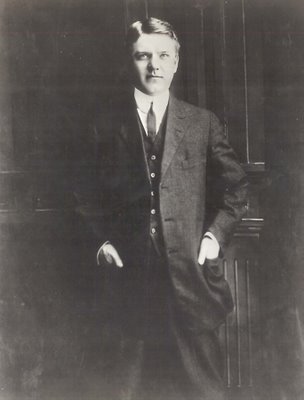
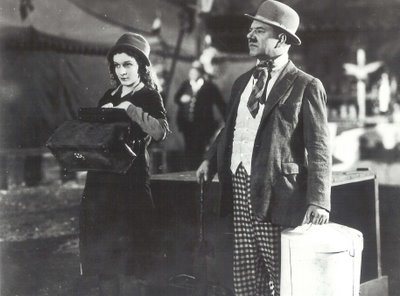
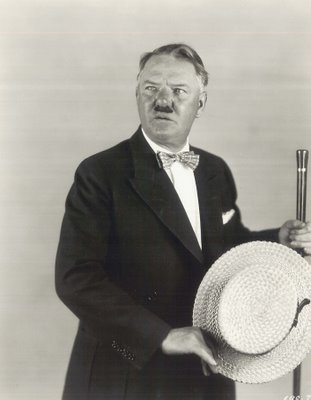 The Great Man --- Part One
The Great Man --- Part OneThere was a time when W.C. Fields seemed eternal. His persona, his philosophy, embraced generations long after he left life's stage in 1946. A fan following as yet unborn would replace the audience that filed out when he died. Fields' image was a pliable one that renewed itself and spoke to the children, then grandchildren, of those who saw him first. I grew up thinking he would always be around, but by present look of things, it would seem we have all but lost Uncle Bill. Where are teen-agers and college students of yore that lined up at revival theatres and University campuses to see him? Their numbers have not been replenished --- how can they with the films out of general circulation? My generation had comparatively easy access to him. Viewers today can find Fields on You Tube, or pay for him on DVD. Universal as corporate owner of the comedian's output, should nourish the franchise better. Could it be that Fields violates too many social precepts now in force? I wonder if it is still possible to reclaim rightful place on the comedy pantheon for W.C. Fields.
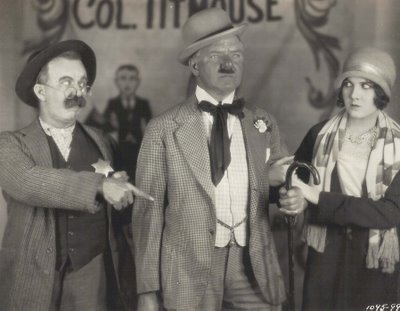
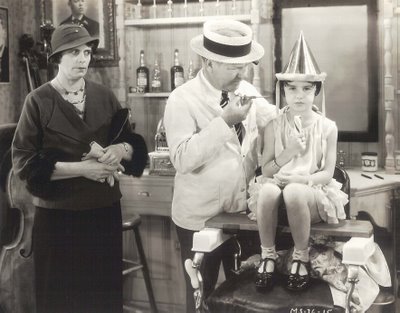
There once was a radio program entitled Biography In Sound. Their February 28, 1956 episode was called Magnificent Rogue --- Adventures Of W.C. Fields, and Fred Allen was the host. Some remarkable guests speak to their friendship and association with Fields --- Leo McCarey, Mack Sennett, Errol Flynn, Baby LeRoy --- what a line-up. Coming within a decade of Field’s passing, this is a collection of show-biz anecdotes recalled while reasonably fresh on the minds of the tellers, giving us vivid sense of Fields as the outrageous non-conformist they wish they could have been. I gather it was easier for veterans to applaud Bill from the comfortable distance those ten years had given them, for his actual life was anything but cakes and ale.
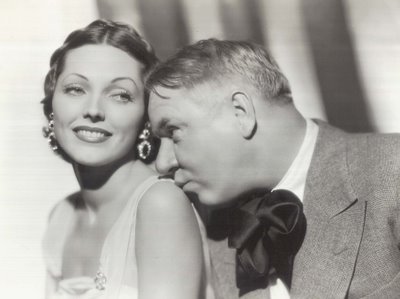
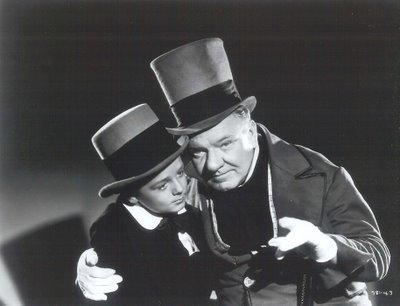
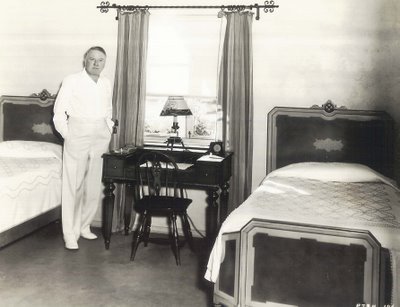
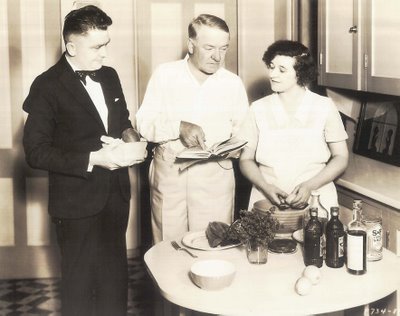
The definitive biography of Fields was written by James Curtis and published in 2003. Curtis puts a human face on what had to be a difficult subject. Everything I’d read of Fields leads me to believe he was more/less an unapproachable variation on the most anti-social aspects of his screen character, a person I would have actually have been afraid to meet. Identifying with Fields would need first-hand exposure to childhood traumas many of us might have folded under. Hardship he overcame shocks made me realize how pampered we are in a digital world of plenty. I had not appreciated what a violent background Fields rose from, and thrived in. There were beatings from his father, street crimes in which he might be a victim one day, and assailant the next. Fields routinely resorted to near-deadly force in settling arguments, and this didn’t necessarily end when he stepped before footlights. The Follies legend of how he broke a pool cue over Ed Wynn’s head during a routine was likely true. Fields didn’t like his rival’s on-stage intrusion and retaliated in accordance with his upbringing and experience. He was a dangerous man to trifle with.
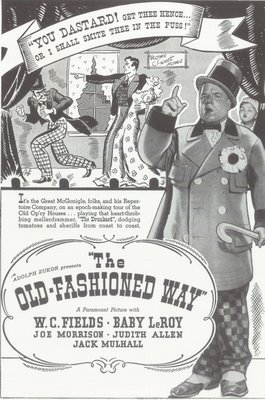
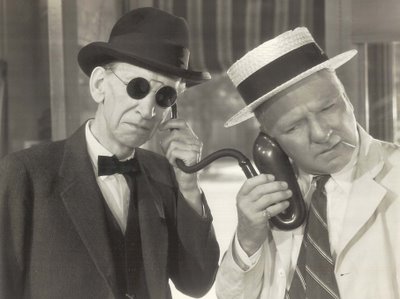
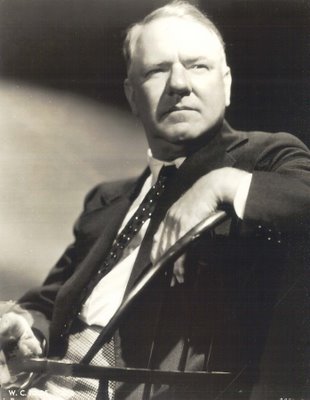
Vaudeville and variety was drudgery, but paid well to those who found popularity. Fields got a start juggling, but custom props had to be transported from town to town, and they wouldn’t fit in overhead compartments even if those were available in a first half of the twentieth century. Precision needed to juggle precluded alcohol use, though as dialogue and verbal humor became focal to the act, Fields took to the bottle with gusto, movies allowing for an even more sedentary lifestyle. Silent era Fields is largely unknown to us, those features and a couple of shorts he did without sound either lost or seldom shown. He wore a grubby little clip-on mustache in all of them, just the thing to remove even a remotest possibility of audience sympathy for him. Many of the routines Fields immortalized in talkies were done first here, but played silent, they were deadly, so real stardom wouldn’t be achieved until he could step in front of a microphone. Even then, it was slow getting to the top. Paramount used him in all-star concoctions --- this is the beginning of the Fields we know. Watching International House amounts to fairly equal doses of ambrosia and castor oil. When Bill’s on, there is no better comedy to be had, but where it’s Stuart Erwin and Peggy Hopkins Joyce bickering on a mock-up desert soundstage --- well, include us out. The best Fields work prior to 1934 may well be four two-reelrs he did for Mack Sennett, a first exposure many of us had to W.C. Fields. They were available in 8 and 16mm during the sixties and seventies from Blackhawk Films, and it’s no telling how many runs the things had in schools, libraries, YMCA’s, birthday parties, you name it. I remember playing The Dentist once in a gymnasium filled with college students for what we advertised as a BYOB show (that’s Bring Your Own Bottle for the uninitiated). There was something distinctly Fieldsian about that combination of his voice reverberating off cinderblock walls and drunken hoots plus catcalls that accompanied the screening. Maybe this is just the sort of exposure his films could use today.
7 Comments:
W.C. Fields... just the thought of him reduces me to a chortling mass of neurons. MAN ON THE FLYING TRAPEZE, IT'S A GIFT, THE OLD-FASHIONED WAY, NEVER GIVE A SUCKER AN EVEN BREAK... there are thousands of movies better than these, but not 10 film comedies that I enjoy more (other than Laurel & Hardy pictures). And I agree with you on the Fields book -- it's a great one. I never thought I'd live long enough to see Fields (and Jack Benny) all but forgotten; what is this world coming to? By the way, I first saw INTERNATIONAL HOUSE at the University of Akron, circa 1979, and I have rarely seen a film so well received... the audience was SCREAMING in hysterics at everything Fields did. I've never stopped.
Keaton and the Marx Bros. draw a blank when I mention them to 20-somethings.
With regards to Keaton and the Marx Brothers, I should add that it's the release of their films that have flourished on DVD, not necessarily the public's familiarity with the comedians themselves --- that is a much more difficult thing to maintain.
I read somewhere that Keaton and Fields did some work together I think in the 50's. There is film of this somewhere but unfortunately in "private hands".
That would be something to see.
You can't even get Fields on DVD in the UK - I've had to buy the R1 disks. I have SALLY OF THE SAWDUST on UK video, but know of nothing else ever released on VHS.
There was a Fields 'season' on TV about 15 years ago, which included IT'S A GIFT and THE BANK DICK amongst others. They used to show MY LITTLE CHICKADEE on a regular basis, but that hasn't been seen for about ten years.
A London radio DJ, Danny Baker, makes constant appeals on his show for the Fields films to be released, but interest appears to be zilch over here.
I have been presenting courses on film comedy at Elderhostels in Virginia for the past ten years. I am surprised at the number of persons in my age group (Seventies) who have not been exposed to Fields. I use the porch scdene from IT'S A GIFT and the juggling sequence from THE OLD FASHIONED WAY and it knocks them out.
There was a PD DVD available at all the usual outlets that had THE DENTIST and other shorts on it....was part of a series of discs with early Chaplin and other PD stuff...don't ever recall seeing much else....
Post a Comment
<< Home